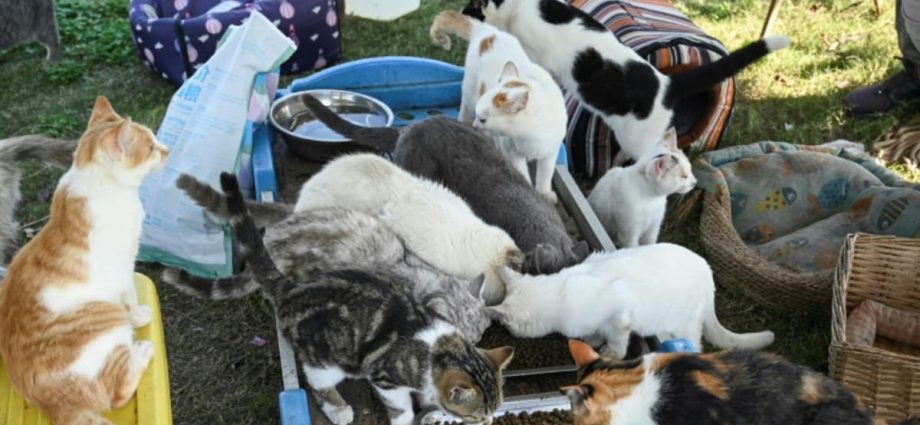
CAT ISLAND
There the animals were taken in by Mengtaiqi Cat and Dog Manor, a small family-run shelter in a marshy area popular with anglers.
Gu Ming, a 45-year-old former pharmaceutical industry professional who lives at the shelter with his wife, told AFP that many of the cats rescued in Zhangjiagang had their limbs crushed under the weight of hundreds of animals.
Dozens have died so far from injuries and viral infections that spread rapidly among the closely packed, distressed animals, he said.
Volunteers at the shelter isolated sick animals in makeshift quarantine cages and called in vets to vaccinate and sterilize the healthier cats.
Eventually, after weeks of treatment and isolation, the first batch of rescues was moved to a large outdoor enclosure with trees and rows of blanket-lined beds.
Gu covers the shelter’s expenses out of his own pocket and only accepts non-cash donations such as equipment and kibble, seeking to avoid the public distrust that fundraisers often attract in China.
He plans to move all the cats onto a small island near a local temple, which is currently dotted with tiny huts and home to a few dozen felines previously rescued by the shelter.
The island’s four-legged residents flocked to greet Gu this month as he crossed the gated bridge that keeps the cats in.
At midday, the animals lolled on the grass and napped under trees – an idyllic existence a far cry from the cramped meat truck crates.
Gu said he was moved by the many animal lovers who had offered help after seeing state media reports about the Zhangjiagang cats.
But still, he said: “We have to push for national legislation, because depending on individuals or a few groups is not realistic”.

